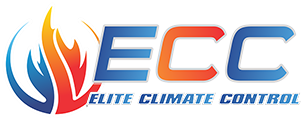Seasonal allergies affect almost 50 million Americans. Some of us also get allergy flare-ups when we spend a lot of time indoors. While there isn’t a single fix for the issue, an air conditioner might have some secrets that can help you get allergy relief. Let’s go over a few typical allergens and examine how your air conditioning system might be of assistance.
Typical Allergens and Their Symptoms
There are allergens both outside and inside of our homes. While indoor allergens come from a variety of sources, including pet hair and dander, dust mites, pest droppings, indoor plants, mold, fibers from synthetic fabrics, cleaning products, gasses from running appliances, and chemicals present in building material, most seasonal allergens appear in the spring when plants release pollen.
Also keep in mind that seasonal allergens can enter your home. Sneezing, itchy eyes, dry skin, a runny nose, and ear congestion are just a few of the allergy symptoms. If left untreated, allergies can also lead to wheezing, asthma episodes, and extreme exhaustion.
How Air Conditioners Can Reduce Allergies
Your air conditioner may significantly alter the quality of the air inside your home and help you breathe air that is free of allergens, whether your allergies flare up during particular seasons or when you’re just relaxing at home. But the filter is where the secret is. It should be inspected monthly, have a MERV rating of at least 8, and be replaced every three months.
How then does the AC assist? Pollen, small particles, and other pollutants are first captured by the air filter used by the air conditioner unit to sift all the air entering your home. Second, an air conditioner regulates indoor humidity, preventing mold and fungus from having the right conditions to flourish. Thirdly, during the sweltering days, you won’t need to open the window because the air conditioner will be circulating fresh air inside. This guarantees that pollen and other allergens won’t find a way into your house.
Guidelines For Using Your HVAC System To Reduce Allergies
Follow these recommendations to get the most from your HVAC:
Get the Right Filter – As was already said, an air filter is a key component of indoor air purification. You cannot afford to cut corners on filters if you suffer from allergies. You can choose an electrostatic filter, which uses an electric charge to attract and trap pollutants, instead of a MERV-rated filter, or a HEPA filter, which has been demonstrated to gather up to 99.97% of allergens.
Regularly Replace Filters – Regardless matter how good your air filter is, it will eventually need to be replaced. Every three months, it ought to be changed. If you don’t take care of it, it will clog, affecting the quality of the air inside your home and making your air conditioner work harder, increasing your energy costs. Check and clean your electrostatic filter frequently if you have one.
Clean Air Ducts – Make an appointment for air duct cleaning. Your duct system is essential to enhancing indoor air quality. As contaminants accumulate inside them over time, they may leak out through the vents and contaminate the air. Although it is not required to regularly clean them, you should plan a ductwork cleanup every few years.
Use an Air Purifier As Well – Clear the air using an air purifier instead of relying solely on your air conditioning system. Add an air purifier to lessen part of its workload. These devices work well to get rid of various impurities like dust, bacteria, and germs.
Maintain Your HVAC System to Benefit Your Health
In order to combat allergies and protect your family from illnesses caused by indoor pollution, work with an HVAC specialist to have your AC tuned up at least once every year. This will guarantee optimal AC operation and clean indoor air. Elite Climate Control is a seasoned HVAC business that provides unrivaled heating and air conditioning services. Feel free to get in touch with us if you require an HVAC repair, an AC upgrade, or a routine inspection.




